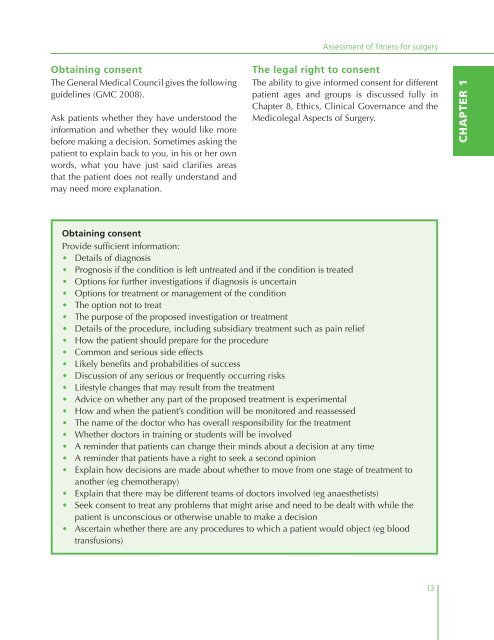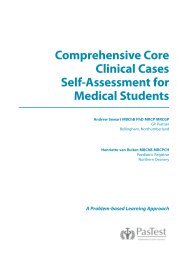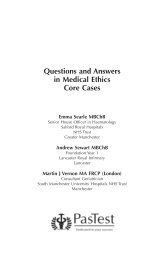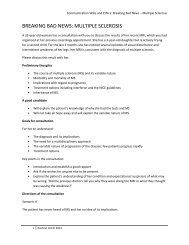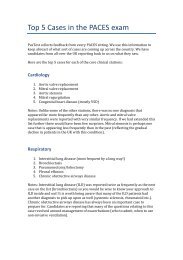MRCS PART A ESSENTIAL REVISION NOTES BOOK 1 - PasTest
MRCS PART A ESSENTIAL REVISION NOTES BOOK 1 - PasTest
MRCS PART A ESSENTIAL REVISION NOTES BOOK 1 - PasTest
- No tags were found...
Create successful ePaper yourself
Turn your PDF publications into a flip-book with our unique Google optimized e-Paper software.
Assessment of fitness for surgeryObtaining consentThe General Medical Council gives the followingguidelines (GMC 2008).Ask patients whether they have understood theinformation and whether they would like morebefore making a decision. Sometimes asking thepatient to explain back to you, in his or her ownwords, what you have just said clarifies areasthat the patient does not really understand andmay need more explanation.The legal right to consentThe ability to give informed consent for differentpatient ages and groups is discussed fully inChapter 8, Ethics, Clinical Governance and theMedicolegal Aspects of Surgery.CHAPTER 1Obtaining consentProvide sufficient information: Details of diagnosis Prognosis if the condition is left untreated and if the condition is treated Options for further investigations if diagnosis is uncertain Options for treatment or management of the condition The option not to treat The purpose of the proposed investigation or treatment Details of the procedure, including subsidiary treatment such as pain relief How the patient should prepare for the procedure Common and serious side effects Likely benefits and probabilities of success Discussion of any serious or frequently occurring risks Lifestyle changes that may result from the treatment Advice on whether any part of the proposed treatment is experimental How and when the patient’s condition will be monitored and reassessed The name of the doctor who has overall responsibility for the treatment Whether doctors in training or students will be involved A reminder that patients can change their minds about a decision at any time A reminder that patients have a right to seek a second opinion Explain how decisions are made about whether to move from one stage of treatment toanother (eg chemotherapy) Explain that there may be different teams of doctors involved (eg anaesthetists) Seek consent to treat any problems that might arise and need to be dealt with while thepatient is unconscious or otherwise unable to make a decision Ascertain whether there are any procedures to which a patient would object (eg bloodtransfusions)13


